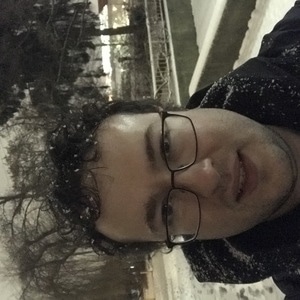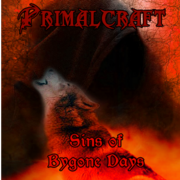Kviye sat in the cockpit performing a third check of all her instruments and displays, including a new panel that had been black and dead her entire life and that until today had been used to display her mother’s photo, which now watched Kviye taped to the viewscreen. The panel was dim and emitted an incessant ticking sound and Kviye could only guess at how long it had not been maintained for. She had decided that further rumination and divination would not help her understand it more than she already did, a passing familiarity based on her experience with other instruments that would hopefully mean that at the very least any avoidable disaster could indeed be avoided.
She took her straight black hair, which normally hung just past her shoulders, and pulled it together with a tie before slipping on her flight helmet – a safety precaution she normally dispensed with, but perhaps not when she was so brazenly tempting fate. Taking a long look at her mother smiling back at her from the wide viewscreen, Kviye brought the propulsion engines to life and the skiff lifted off the landing pad. Kviye angled the ship away from the garage and caught a glimpse of Valyen standing in its doors, her hands tucked into her armpits and a look on her face that Kviye didn’t much want to dwell on. She gave her friend a small wave, knowing that Valyen could not see her through the reflective windows, and pulled away into the skies above Zhakitrinbur.
Kviye gained altitude in a wide spiral over land, the edge of which hugged the bay around which the city had nestled itself. Everything was going well, insofar as her fiddling with the device did not interfere with the regular operation of the skiff – all seemed normal but for the novelty of the flashing panel distracting her out of the corner of her eye.
It was beautiful weather for tempting fate, the kind of day her mother had said was perfect for flying, as long as you liked it easy and didn’t fall asleep at the controls. Her mother preferred flying through a bit of chop, the rain lashing sideways across the hull and the ground hardly visible beneath the murk. This caused no small amount of grief for Kviye’s father, especially when Kviye started joining her on her runs, rain or shine.
It had been nearly seven years to the day since she had left them after succumbing to the grey, a wasting disease that seemed to affect more and more people on their moon every year. In the last few months of her life, she had been unable to fly, and Kviye took to making her first solo short-haul runs, always flying with the fear that her mother wouldn’t be there when she returned. During the final week, she grounded herself completely and while her father stayed in the other room unable to face his stricken wife, Kviye stayed by her mother’s bedside as the disease took her sight, her speech, her hearing and eventually the rest of what it had left.
After the funeral, it had rained forever in Vingu and they did not speak for so long that Kviye wasn’t sure if she had a voice anymore. Valyen’s calls were left unanswered and became less frequent, but still every two days, right before sunset, like clockwork. The colour had all been washed away from the world, and out of Kviye’s life.
One day, they had been sitting at the dining table, eating for the fifth meal in a row a thin vegetable soup with some floating cracked bones in it, as the incessant rain pelted against the window.
“Dad?” Kviye asked, and her father seemed startled by the sudden intrusion of sound into their lives.
The question, which she wished had been asked earlier so that the person she most wanted to answer it would have had a chance to do so, hurt her throat with its jagged edges as it came out. “Why did mom love flying?”
Their words lapped at the shores of silence, long pauses between each of them speaking. “It was just her job.”
“I know it wasn’t. Sometimes I could hear her take off in the middle of the night, and then she would come back a couple of hours later. I’d check the log the next morning, and there were no jobs. So what was she doing?”
Her father took a deep breath and closed his eyes, rubbing his temples with his fingers. “It’s the one thing I never understood about your mother, and like you, I waited too long to ask. I think I was mostly scared of the answer, that if she told me how she felt I would never shake this feeling that we were not enough for her. There was something about her and the sky and those stars.” He looked at the window, where the hangar with its cold and quiet skiff stood barely visible through the rain. “I’d guess it’s something you know more about than I do.” He smiled then, the first smile that had entered her world in so long she wasn’t sure she remembered how to do it. But she did remember, and she did smile back, and put her hand over her father’s as it rested on top of the table.
She wanted to say “I do” but the words jammed in her throat, and tears formed in her eyes. Her father’s eyes too, glistened in the dim light as he nodded in the direction of the window and asked her if she wanted to go out.
She wiped her eyes and managed to say “yes” before giving him a hug.
Half an hour later, when she brought the skiff above the clouds and into the warmth of the sun, she made herself a promise that she would find a way to climb higher and higher, to bring herself to someone else’s distant sun, where they would know of a cure to the affliction that took her mother.
Not even Valyen knew that this was one of the biggest reasons Kviye had been chasing the little black spheres all these years. With Adri getting sicker, she didn’t want to give her any hope; hope she knew would more likely than not come crashing out of the sky in a manner of minutes.
The altimeter indicated that she was about five hundred feet below the point where her last experiment nearly ended in complete disaster. She leveled her ascent, and took the skiff away from the city, so she could line up a trajectory that should have had her out of the atmosphere within Valyen’s field of view. As she took the ship around, it began to quiver with the realization that the air would soon be too thin for it to continue, but Kviye patted the controls and in a hushed tone told the skiff that everything was going to be okay.
Even if it was going to all go well, and she would descend triumphantly back to Zhakitrinbur after kissing the underbelly of the great black frontier, and give that “told you so” smile to Valyen who would then take it in stride because all she wanted was for Kviye to return safe, this would only be the first baby step. Valyen was right, the ship didn’t have anything resembling a skimmer, and even if she could put something together from spare parts that came through Valyen’s garage it could take years for something workable to be constructed. And that something had as much odds of blowing her out of the sky as her current experiment did. Was there a point at the end of all this, a reason for her trying that was more than the trying itself?
The voice inside her head, which unsurprisingly sounded much like Valyen’s, asked her one last time if she still thought it was a good idea. By way of answer, Kviye swiftly brought the skiff to maximum velocity, tipped the nose upward, and flipped a switch on the dusty control panel.
The panel blared in either alarm or excitement and a new kind of shiver passed through the ship. Somewhere behind her, the lid of the device blew open with a crash. For a moment, it seemed as though nothing would happen, but then Kviye felt the weight of the whole moon press her into her seat and then incrementally release her as if something within the ship itself helped Kviye in her struggle against this new force. The altimeter blazed past her previous record and kept rising. The ship shook and bucked in protest of this new sensation as Kviye made the necessary adjustments to spare herself from being pulverized against her seat. She took a quick glance at the altimeter, and it was either broken, or she was about to leave the only world she knew behind.
She thought she imagined it at first, or that she was losing consciousness and her vision was blackening around the edges, and then she understood what was happening. The sky that had long hung over her like a protective blanket had parted, and she found that all this time it had been a veil that concealed from her the most beautiful sight.
The black expanse towered over her like an endless possibility, and as her eyes adjusted to the light, the stars, without their familiar twinkle, revealed themselves around her. Below her, the greenish pearl of her moon hung like a tear drop off the solemn grey cheek of the gas giant. Kviye reached out and touched the cold glass of the viewscreen. The stars, just beyond her fingertips, appeared close enough to reach, no longer a dream, but a material thing she could touch, as long as she pointed her ship the right direction and kept going.
Kviye returned from those infinite worlds and back into her chair to the sound of her instruments gone haywire. Or rather, she would have been lifted out of that same chair as if by the buoyancy of the summer sea if she had not been strapped in. The new panel had been extinguished and displayed only the familiar blank screen, while everything else that was still functional was blaring an admonishing “I told you so” at her.
How long had the ship been listing? She thought that she couldn’t have been floating in space for longer than a few minutes, but the chains of the moon were unmistakably pulling the skiff back into its solid embrace. Kviye looked behind her and found the panel from the device had almost made it cleanly through the wall of the engine room and out into the passageway connecting it with the cockpit. “Oh no,” she muttered and then checked the altimeter. The instrument that had recently heralded her greatest success was now counting down, at increasing speed, towards inevitable failure.
Unbuckling, Kviye lifted off her seat and maneuvered her legs so that she could push herself off the control panel and out of the cockpit. She undershot, and used her arms to pull herself towards the entrance of the engine room and the sharp shard of metal sticking through the wall next to it. Gravity, though still weak, was shifting perceptibly in the wrong direction. Inside the engine room, she found the device where she had positioned the spheres was indeed missing a door and was surrounded by concentric ripples of buckled metal that reached up to the ceiling. The assessment of the extent of the damage would have to wait, though it constricted her stomach in an uncomfortable fist.
The largest of the spheres, the one she picked up from Valyen earlier that day, lay at the bottom of the device, noticeably shrunken, along with three of the pebbles. She scanned the room for the missing ones but finding no trace of them tried to reassemble the array with what she had.
After a few minutes of fiddling with the black orbs, the whole time trying to brace herself against the wall to avoid drifting away and trying to ignore that the ship was gaining speed and bringing heaviness back into her body, she decided it was a futile effort and shoved the remaining ones in her pocket. Turning again and pushing her feet against the wall, she launched herself back through the door and towards the cockpit. About halfway there, she realized she overshot, and with a “no, no, no” that culminated in a grunt, slammed with her back against the control panel of the skiff.
The ship had made significant progress towards the surface of Tanfana, which made it easier for Kviye to scramble back into the seat and buckle her restraints. With some gargantuan effort from the little propulsion that the ship could muster, Kviye manage to face it in the correct direction, in the sense that she could now observe the ever-approaching expanse of the green moon. She pivoted the nose of the skiff towards the bay on which Zhakitrinbur stood and using all the functioning systems that she had left at her disposal, steered the ship’s descent in its general direction.
The dissolving of the black that had enveloped her was even more jarring than when it initially appeared, as if she had been drowning and went for a breath of fresh air, and now her head was again swallowed by the waves. With the return to Tanfana’s atmosphere, the ship shook harder, and the heat slowly crept through the hull and into the cockpit.
Sweat streamed down the back of Kviye’s neck as her fingers gripped tighter around the steering. An attempt to deploy one of the skiff’s exterior breaks caused it to rip clean off the ship and almost sent her into an uncontrollable spin had Kviye not managed to get a handle on the steering. Still, her angle of approach remained too steep and Zhakitrinbur grew in the distance with alarming speed. The whole world seemed to shrink into that single shortening line and its stubborn angle. Every other thought that bothered to try to enter into her head – her father, coming home to find the skiff and Kviye missing, her mother’s photo watching her struggle with the controls, the stars, in their glamorous endless glory – all had been rebuffed and pushed away.
Only one image kept worming itself into her mind and stinging her eyes along with the sweat that she couldn’t brush away for fear of letting go of the controls. Somewhere on the ground, Valyen stood and watched the whole thing; her slow and then rapid ascent that sent her clear out of sight; had she cheered, despite herself? Kviye believed that she did. Something subdued, like a single clap or a slap against her thigh. And now, faced with her agonizingly slow descent, that left behind a trail of fire and debris, would she have looked away? No, not Valyen. She was too practical. She’d watch until the last second so she could tell where the ship went down, so she could make her way there, alone if she had to. She wouldn’t be able to tear her eyes away, same as Kviye from the marshes that grew monstrous in front of her, looking for a soft damp spot but not one that would swallow the ship whole and deprive Valyen of her closure. Just look away. Close your eyes. Please, Val, look away.











Comments (0)
See all